The Honorable Edward M. Gabriel talks about his up-by-the-bootstraps life with HOME — telling a story of appreciation for his Lebanese heritage, patriotism for his country and hope for stronger U.S.–Lebanese relations.
Article by: Sandra Whitehead
Ambassador Edward Gabriel, a mover and shaker in American foreign policy, is proud of his humble beginnings.
“Not many shoeshine boys grow up to be ambassadors,” he said recently in a Skype interview from his office at The Gabriel Company in Washington, D.C. His consultancy serves U.S. businesses seeking to invest in the Middle East and North Africa. Silver wisps above his ears gave a look of distinction to his otherwise dark hair; his narrow face filled with a broad smile. “Only in America,” he exclaimed. “I am proud of the fact that from a modest background, I was able to become a policymaker in my country and on its behalf overseas.”
“The next generation has to take the reins from us, and make a difference in terms of what we feel is in America’s and Lebanon’s best interest.”
Gabriel was appointed by President Bill Clinton as the U.S. Ambassador to the Kingdom of Morocco and served from November 1997 – March 2001. He is proud that, during his tenure, the Embassy won recognition for having the top strategic plan of all the U.S. embassies in the world. “We brought the entire embassy together — Americans and local hires — to develop a long-term strategic vision and we integrated all the federal agencies together in pursuit of that vision.”
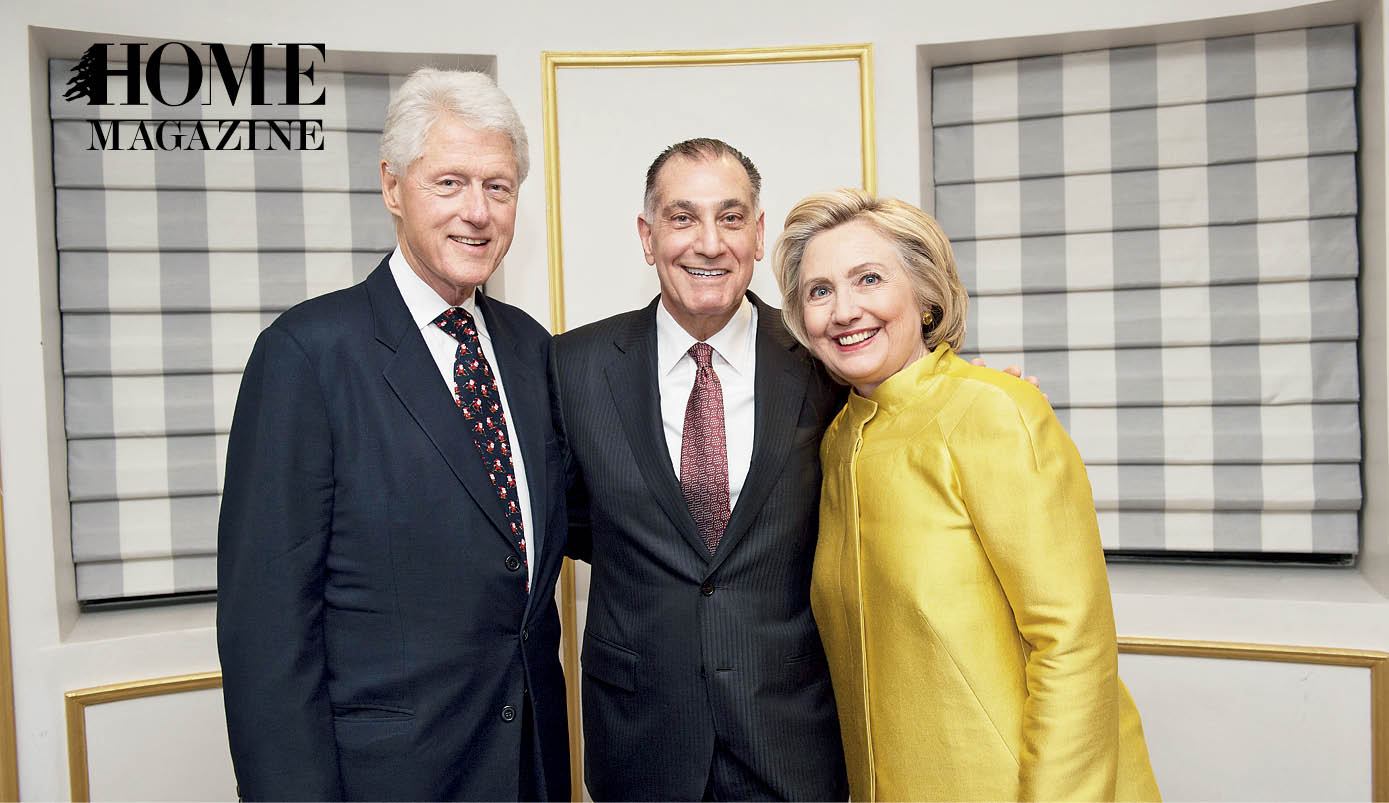 Ambassador Gabriel with President and Secretary Clinton
Ambassador Gabriel with President and Secretary Clinton
More important, he said, was his role in bringing Morocco closer to the U.S. through strengthening commercial relations, educational and cultural exchanges, and security and military cooperation. That post may have been the pinnacle of his career, but it is certainly not the only place his influence is felt.
He continues to be on the front lines of diplomacy in the Middle East as the president and CEO of the American Task Force for Lebanon — meeting in September with Lebanon’s President Michel Aoun as the head of an ATFL delegation, aiming to improve U.S.– Lebanese relations. He advised Hillary Clinton on Arab-American relations during her presidential campaign, and traveled to Syria extensively, prior to the conflict there, as an advisor to the U.S. government, meeting with Syrian President Bashar Assad on multiple occasions.
His opinions are found in The Washington Post, The New York Times, The Huffington Post and The Hill, a U.S. political news site read by government insiders. A study he chaired on America’s post-Cold War relations with the Arab world has become a reference guide on the changing policies towards the Middle East.
He’s a popular guest lecturer at top universities across the U.S., including Harvard, Princeton, Cornell, St. Lawrence, Yale and Stanford. And, of course, he is a favorite at his alma mater, Gannon University in Erie, Pennsylvania. Gabriel recently spoke at MOVE 2017, an Arab-American summit called to exchange ideas about a wide range of issues impacting Arab Americans. “They wanted to know how I got involved in the world of policy,” he said, referring to his decades in public service.
“Thank God we have an organization of prominent Lebanese Americans who care about their country of origin, can rally together and walk into the White House, the State Department and the halls of Congress, and make a difference.”
He has an extensive background in international affairs, having convened multilateral policy forums on critical global concerns, including international energy, counterterrorism and regional security, and has been involved in matters of Russian and European nuclear nonproliferation.
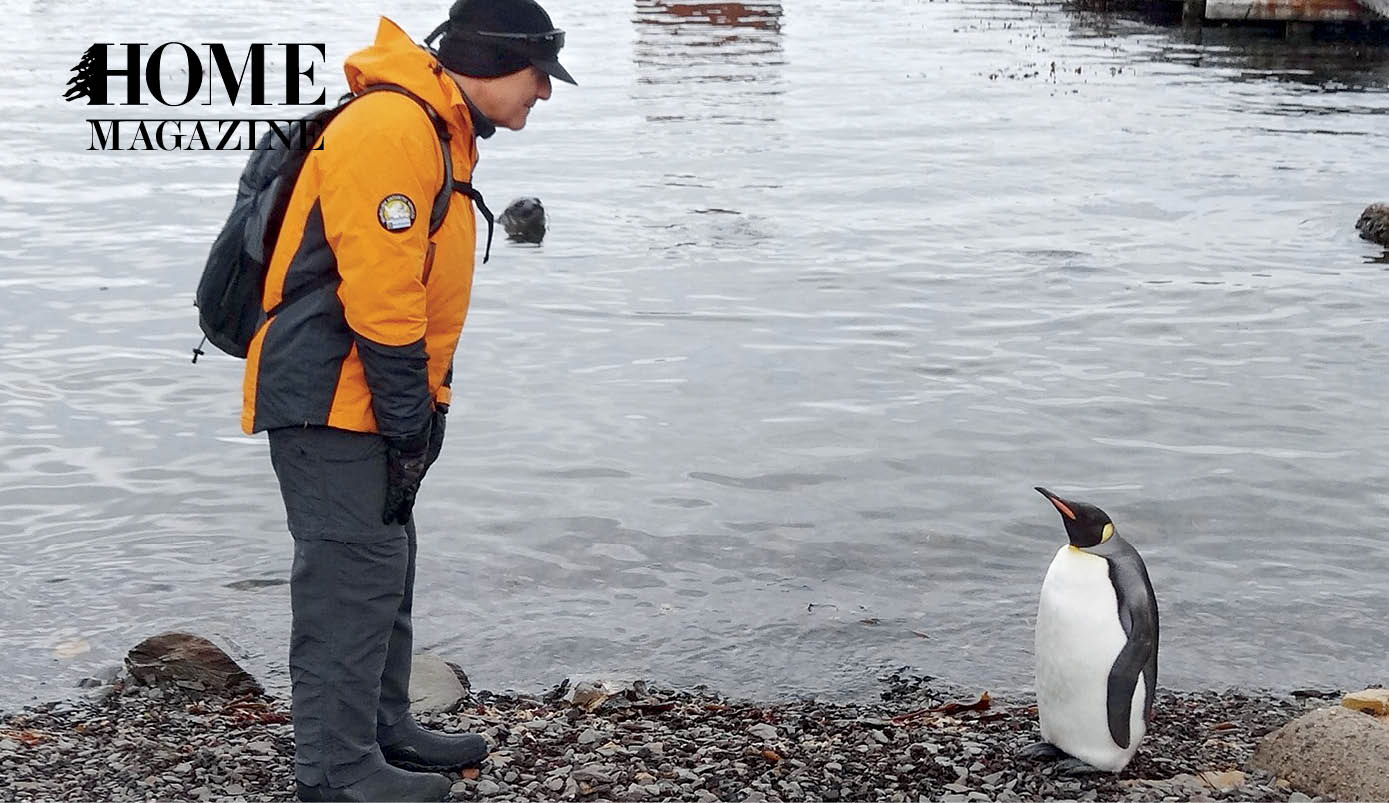 Ambassador Gabriel in Antarctica
Ambassador Gabriel in Antarctica
Gabriel has served as a Visiting Fellow at the Center for Strategic and International Studies, a member of the Global Advisory Board of George Washington University, the Tangier American Legation Museum and the Casablanca American School. He is chairman of the Moroccan American Center (which works to strengthen U.S.-Moroccan political, business, cultural and security relationships) and co-chairman of the American Schools of Tangier and Marrakech. He is a member of the boards of AMIDEAST, the Arab American National Museum, the Lebanese American University (newly appointed), The Keystone Policy Center, a non-profit that works to influence public policy on “our society’s most challenging environmental, energy and public health problems,” and — the list goes on!
African Intelligence, a website that covers business and political news, ran a banner headline in late November that read, “Top Morocco PR Man Ed Gabriel Retires.” As if!
Actually — at 67, Gabriel stepped down as a consultant to the Kingdom of Morocco, but he shows no signs of retiring. He’s engaged in an impressive career that combines his passion for policy and his “Phoenician entrepreneurial gene,” another “only-in-America” experience, he said. “There are not many places in the world where you can combine both the public and private sectors into one’s career.”
Whether in the public, private or non-profit sectors, “your value system is most important,” said Gabriel. “I have found that the most important ingredient to success, whether in business or diplomacy, is being able to develop trust and confidence with your interlocutor. It doesn’t matter if you’re pitching a foreign leader or pitching a new client, trust and confidence always come first.”
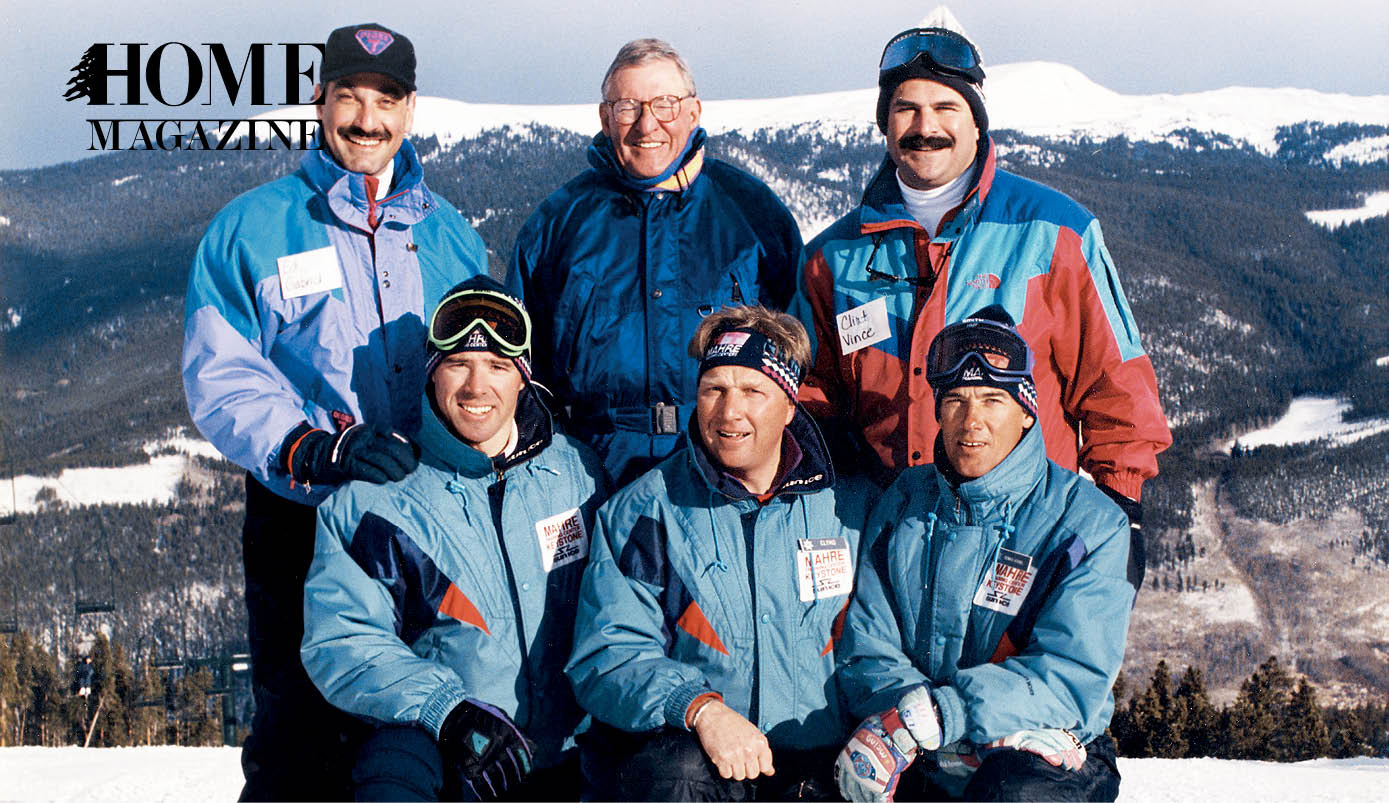 Ambassador Gabriel with Olympian skiers Phil and Steve Mahre
Ambassador Gabriel with Olympian skiers Phil and Steve Mahre
Lebanese roots
Gabriel’s Lebanese roots run deep. With the Lebanese-American equivalent to coming over on the Mayflower, the family traces its lineage back to the first Lebanese person to immigrate to the U.S. — a Bishelany who settled in Boston in 1854. Gabriel’s father’s real name was Michel John Gabriel Bishelany. “At Ellis Island, the name Bishelany was removed and my father then became Michael John Gabriel.” The family’s name has been Gabriel ever since.
Historically, the Bishelany family was known for its work in the ancient silk industry in the Metn. Gabriel’s immediate family immigrated in several waves in the early 1900s, with Gabriel’s father being the last to arrive, hailing from Salima, Lebanon, in 1910.
“Everybody in this country has been touched by a Lebanese.”
The family became quite prosperous — “everyone except my father,” Gabriel said. His relatives consider Bishop Robert Shaheen, a grandson of Gabriel’s father’s sister, the most successful member of the family. Shaheen was the head of the Maronite Church in America. “I soon discovered that although becoming an ambassador is an impressive and high honor, in my family, a bishop trumps an ambassador.”
Gabriel’s patriotism may have come from his father. “I think my father’s most satisfying work was his years in military service,” said Gabriel. “He lied about his age when he was too young to serve in World War I and again when he was too old to serve in World War II.”
Gabriel said his father was “very politically opinionated. A man of little means — a taxi cab driver, janitor, menial jobs – but he really cared about politics. I remember him always typing letters expressing his views to his representatives in Congress.”
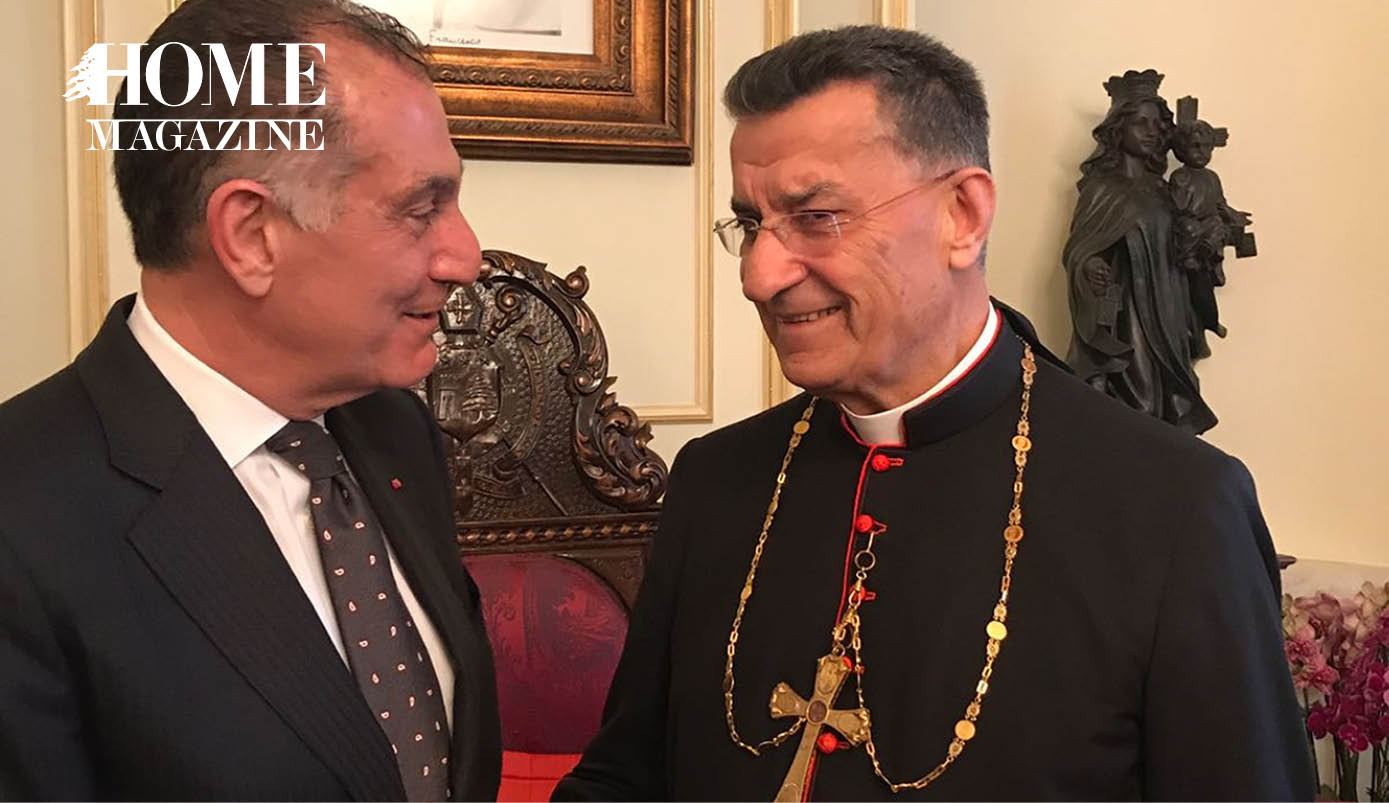 Ambassador Gabriel with Patriarch Cardinal Bechara Boutros al-Rahi
Ambassador Gabriel with Patriarch Cardinal Bechara Boutros al-Rahi
He was especially concerned about injustices towards blacks and Native Americans. “His English language was not great, so he filled his commentary with colorful curse words. It was well known in our family that he was quite animated in his feelings about political situations, which was quite entertaining. He was very socially conscious,” said Gabriel. “That really made an impression on me.”
Gabriel’s mother was born in Olean, New York. Her parents immigrated from Hasbaya el-Metn in 1895. Gabriel says his mother was “my best friend.”
In an oral history of Gabriel produced by the U.S. State Department, he said of his mother, “She taught me most of life’s lessons: the importance of education — she never doubted that my sister and I would be the first in our family to go to college; that to get a good job and the opportunity to work hard was part of the American dream.” She also had the gift of humor, and the little Arabic he speaks came from listening to her.
Yet, in his early childhood, Gabriel didn’t realize he was Lebanese. “People called us ‘Turks’ or ‘Syrians,’” he said.
Then, in the 1950s, “The Danny Thomas Show” became the most popular thing on TV and put Lebanese Americans on the map. “We became Lebanese with that show.”
“In the 1970s, with the Arab oil embargo, I became more politically knowledgeable about the Middle East. I was in my 20s, and there was a lot of political activity regarding the region at that time,” he said.
Gabriel visited Lebanon for the first time in 1994, when he was 44. “I felt at HOME as soon as we landed,” he recalled. “I’m very Lebanese. I took a DNA test that showed I’m 99.3 percent Lebanese/Middle Eastern.” He has continued visiting Lebanon every year since, and is currently going twice a year in official capacities as the head of the American Task Force for Lebanon and an LAU board member.
Gabriel’s Lebanese heritage shows in “the strong connection to HOME and to parents; hospitality and sense of charitable giving, and opening your HOME to people — these are all very Lebanese,” he said.
Up by the bootstraps
The American expression “to pull one’s self up by the bootstraps” means to succeed through your own efforts and abilities. That’s just what Gabriel, his mother and his sister, who was four years his elder, had to do.
“Lebanese Americans need to give time, money and brain power.”
When Gabriel was 7, his father died, leaving nothing financially for the family. “A cab driver who dies at the age of 57 — you can imagine how little we had, and my mom was left with two small children and her job as a clerk in a department store that she kept until she retired.”
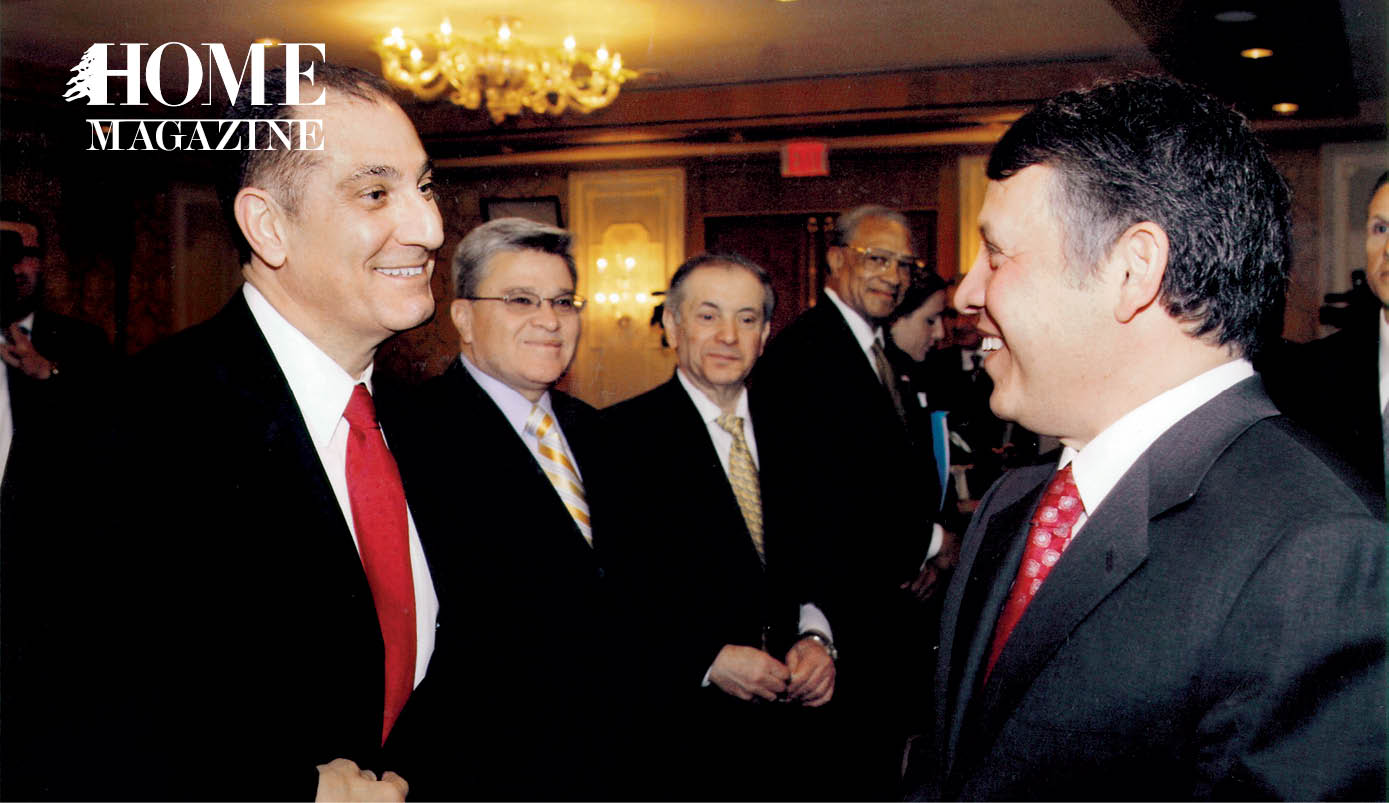 Ambassador Gabriel leads a delegation of Arab Americans in discussions with King Abdullah of Jordan
Ambassador Gabriel leads a delegation of Arab Americans in discussions with King Abdullah of Jordan
“I also went to work when I was 10 years old, peddling papers. I lied about my age since the minimum age was 11,” Gabriel recalled in the oral history. Later, he worked his way through college in a construction job, digging ditches. Yet, he doesn’t remember those days as particularly difficult, he told HOME.
“The three of us lived in a community that was very caring,” he said. Gabriel grew up in Olean, a small town in the Allegheny Mountains in upstate New York. “We could stay out until all hours of the night without worrying our parents. If we got in trouble, the police would bring us HOME to face the consequences. It was a good life, a memorable life, an easy life in many ways.”
Gabriel is still in touch with a dozen of his grade school friends. “It tells you something,” he said. Just like in a small village in Lebanon, you stay connected.
“The community was a mix of Lebanese, Irish, Germans, Italians and Poles. Olean was 80 percent Catholic, and everybody had their church. We went to the Maronite church. St. Joseph Grade School was connected to the church. The Catholic Maronite Church was a very big part of my growing up,” he said.
“Small-town America — a place where we wandered beyond our neighborhood without fear, where we could go Christmas caroling for charity donations and people would open their HOMEs to us, where in the worst winter weather, we would be sledding on the high school hill across the street from my house. It was a great place to grow up.”
Thirty-four years ago, Gabriel married “an Irish woman, Kathleen Mary Linehan, from South Boston,” who, like Gabriel, is a hard-working professional.
Hopes for U.S.–Lebanese relations
Gabriel is pleased to have taken the reins of the American Task Force for Lebanon “at a time when it is so badly needed. I think we have increased the impact ATFL has had in Washington, D.C.,” he said. “Thank God we have an organization of prominent Lebanese Americans who care about their country of origin, can rally together and walk into the White House, the State Department and the halls of Congress, and make a difference in terms of what we feel is in America’s and Lebanon’s best interest.”
Still there is much work to be done, he said. “I feel strongly that America has to better understand Lebanon.
Unfortunately, the press of the last few decades has painted the wrong picture of Lebanon to the average American, who doesn’t really know the Middle East.
“Not many shoeshine boys grow up to be ambassadors — only in America!”
“Lebanese Americans make up one of the most successful subgroups of our population,” said Gabriel. “Almost everybody in this country has been touched by a Lebanese.” They have Lebanese-American neighbors, teachers, community leaders and friends “who positively affected the popular perception of the Lebanese here in America. It’s been drowned out in the last few years.
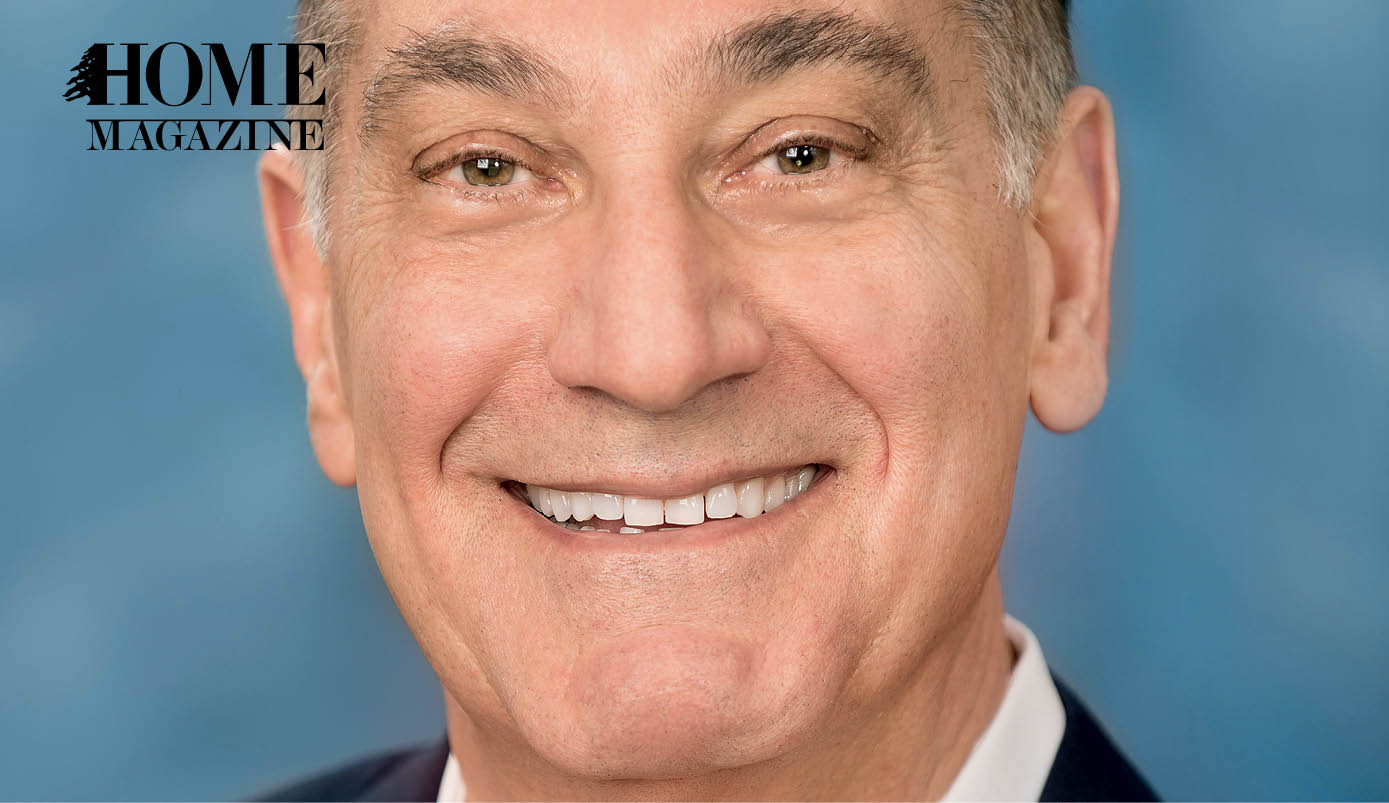 Photo by melissagrimesguyphotography.com
Photo by melissagrimesguyphotography.com
“It is in America’s interest to support Lebanon’s security and to make sure there are strong financial institutions, like the banking system, to ensure a vibrant economy.”
And Americans can learn from Lebanon. “Lebanon is a country of diverse religions where the people live with respect for each other. We should learn from them and foster the exchange of ideas in religions. The Abrahamic faiths are very much alike. How can we make Americans understand – whether Muslim, Druse, Shite, Sunni, or various forms of Christianity, we all have the same values?”
One answer is Lebanese Americans themselves, said Gabriel. “They are the secret weapon of policy making in America. I hear heads of other countries say that they wish their people who are now citizens in America would care as much as Lebanese Americans.”
The next generation of Lebanese Americans needs to step up
“We need to educate young Lebanese Americans on the political process and encourage them to be involved in the community and the country they are living in,” said Gabriel.
“They can’t just complain. Lebanese Americans need to participate in the Task Force and similar organizations, to give time, money and brain power. They need to step up and say, ‘we believe in what you do and will join with you.’
“My generation of Lebanese Americans really cared about our country,” he said. “The next generation has to take the reins from us.”
The Word Game
To gain some insight into how Ambassador Edward Gabriel thinks, HOME asked him to play a word association game with us. We mentioned a word and he responded with the first thing that came to mind.
Diplomacy
The skill to get people to understand your point of view, while you are understanding their point of view.
Social change
Moving forward.
Citizenship
Giving back to one’s country.
Gender equality
We need more of it. How can our country ever succeed if it holds back half the population?
Reform
We need it. As much as Americans think we are No. 1 in all aspects, we are not. We need reform ourselves and need to make sure our values are exhibited at the same time.
Cultural diplomacy
It is important, especially exchange programs. When people visit America, they like America; when they don’t, they don’t. Polls show that.
Refugees
We have to do something about it. Americans are so far removed, they don’t understand how much pressure will be on the rest of the world and America if we don’t address it now.
Peacemaking
One of the greatest virtues that could ever be bestowed on an individual as his or her responsibility. I think of George Mitchell when I say that.
Gabriel’s Mentors
Ambassador Edward M. Gabriel credits mentors, both famous and obscure, who gave him inspiration, encouragement and support along his amazing journey.
The Honorable George Mitchell – U.S. diplomat and Senate majority leader, chairman of The Walt Disney Company, a role model for rising from poverty.
Ed Stayer – his supervisor on a construction job, “who taught me to work hard.”
Charles Bennett – his college economics professor, “who taught me about socioeconomic policy and President Johnson’s War on Poverty, which led me to a long career in government and public policy.”
Ben Wiley – Executive director of the Greater Erie Community Action Committee, his employer and a black leader in the community, who “was bigger than life to me. He was a lifelong mentor.”
Hazel O’Leary – the Secretary of Energy, “who took me under her wing.”
President Bill Clinton and Secretary Hillary Clinton – under whom Gabriel worked in several capacities; President Clinton appointed Gabriel as Ambassador to Morocco.
“And I could go on,” Gabriel said.
For more info:

































